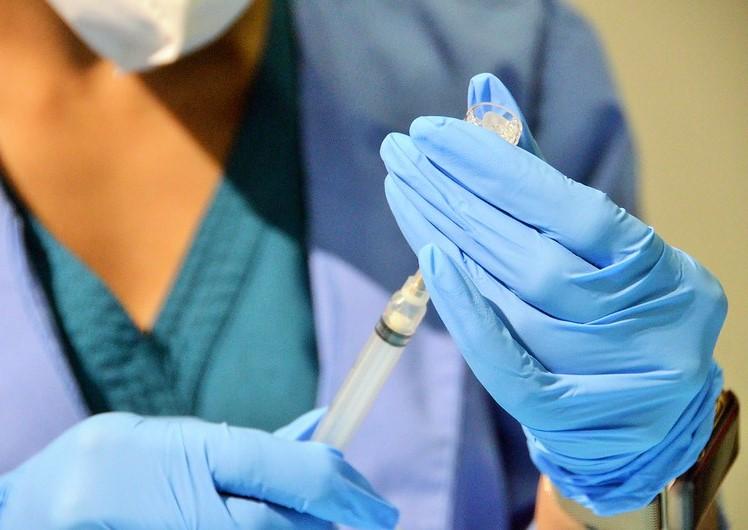Data from a UK phase 2/3 clinical trial suggest the AstraZeneca-Oxford COVID-vaccine is 70.4% effective against symptomatic COVID-19 caused by the B117 variant, which was identified in the United Kingdom in late 2020.
The data, published in The Lancet yesterday, also showed it was 28.9% effective at preventing asymptomatic infections or cases with unknown symptoms.
Overall efficacy was 61.7% against the B117 variant and 77.3% against other variants, according to the study. The vaccine was 81.5% effective in preventing symptomatic COVID-19 caused by non-B117 strains.
In a Lancet commentary, Rogier W. Sanders, PhD, and Menno D. de Jong, MD, PhD, of Amsterdam University Medical Centers, write, "Given the wide CIs [confidence intervals] in these exploratory analyses, no firm conclusions can be drawn on the precise clinical efficacy against the B.1.1.7 variant and, importantly, how this efficacy compares with efficacy against the original circulating variants."
Even so, they say the findings "suggest a meaningful degree of efficacy against the B.1.1.7 variant, which is encouraging."
The AstraZeneca vaccine is being rolled out in the United Kingdom, countries participating in the World Health Organization's (WHO's) COVAX initiative, and elsewhere. Both the AstraZeneca and Johnson & Johnson vaccine use viral vector technology, as opposed to the mRNA method that the Pfizer/BioNTech and Moderna COVID-19 vaccines use.
Good protection despite lower immune response
From May 31 to Nov 13, 2020, the researchers recruited 8,534 adults from England, Wales, and Scotland. Participants randomly received the intervention (the AstraZeneca vaccine) or a meningococcal control vaccine in a 1:1 ratio. All participants received their second dose from Aug 3 to Dec 30, 2020, and each week the researchers asked the cohort to report any COVID-19 symptoms and requested an upper respiratory swab sample.
A little over 6% were infected with COVID-19 more than 2 weeks after their booster shot (520 cases, 33.3% of whom received the intervention). Genetic sequences were available for 311 cases, and in an examination of 219, the researchers found that B117 caused 35.4% of the 147 symptomatic cases and 35.8% of the asymptomatic cases.
Their results indicate that the AstraZeneca vaccine efficacy was 70.4% (95% CI, 43.6 to 84.5) against symptomatic COVID-19 caused by B117 and 81.5% (95% CI, 67.9 to 89.4) against non-B117 symptomatic COVID-19. Efficacy for asymptomatic/unknown symptom cases was lower both for B117 (28.9%; 95% CI, -77.1 to 71.4) and other strains (69.7%; 95% CI, 33.0 to 86.3).
Forty-nine participants in the intervention group also were part of a blood test, and the researchers found that the vaccine's neutralizing titers were 8.9 times lower against B117 than the Victoria lineage, which is much more similar to the original strain first identified in Wuhan, China.
"Despite the large reduction in measured live neutralising activity against B.1.1.7 virus, the vaccine provided strong protection against B.1.1.7 variant disease, with the lower bound of the 95% CI above the 30% threshold recommended by WHO," the researchers write.
No participants required hospital admission or died from COVID-19 infection. Most (77.8%) were 18 to 55 years old, 59.3% were female, and 92.1% were White.
COVID in vaccinated; dose differences
Compared with the control group, those who received the AstraZeneca-Oxford vaccine tested positive on a nucleic acid amplification test for less time (median, 1 week vs 2 weeks) and had a lower viral load, indicated by a cycle threshold (Ct) value (median 28.8 vs 20.2, where a higher Ct indicates less viral RNA).
The researchers did not find any significant differences between duration or viral loads caused by B117 and non-B117 COVID strains. They did, however, note that symptomatic patients had a higher viral load than those with asymptomatic or unknown infections (median Ct, 18.2 vs 29.7, respectively) and tested positive for longer.
In further exploration of the vaccine's efficacy, a different subset of the intervention cohort received a regimen of low-dose/standard-dose (LD/SD) vaccination as opposed to two standard doses (SD/SD). The SD/SD group made up 36 of 52 symptomatic B117 cases (69.2%) and 61 of 95 symptomatic non-B117 cases (64.2%), so vaccine efficacy was higher in the LD/SD group by 9.2 to 11.2 percentage points.
"Here, we show that the ChAdOx1 nCoV-19 [AstraZeneca] vaccine provides protection against symptomatic disease caused by the novel B.1.1.7 lineage," the researchers conclude. "Vaccination with ChAdOx1 nCoV-19 also results in a reduction in the duration of shedding and viral load, which might reduce transmission of disease, supporting the ongoing use of this vaccine to protect populations at risk of disease."






















